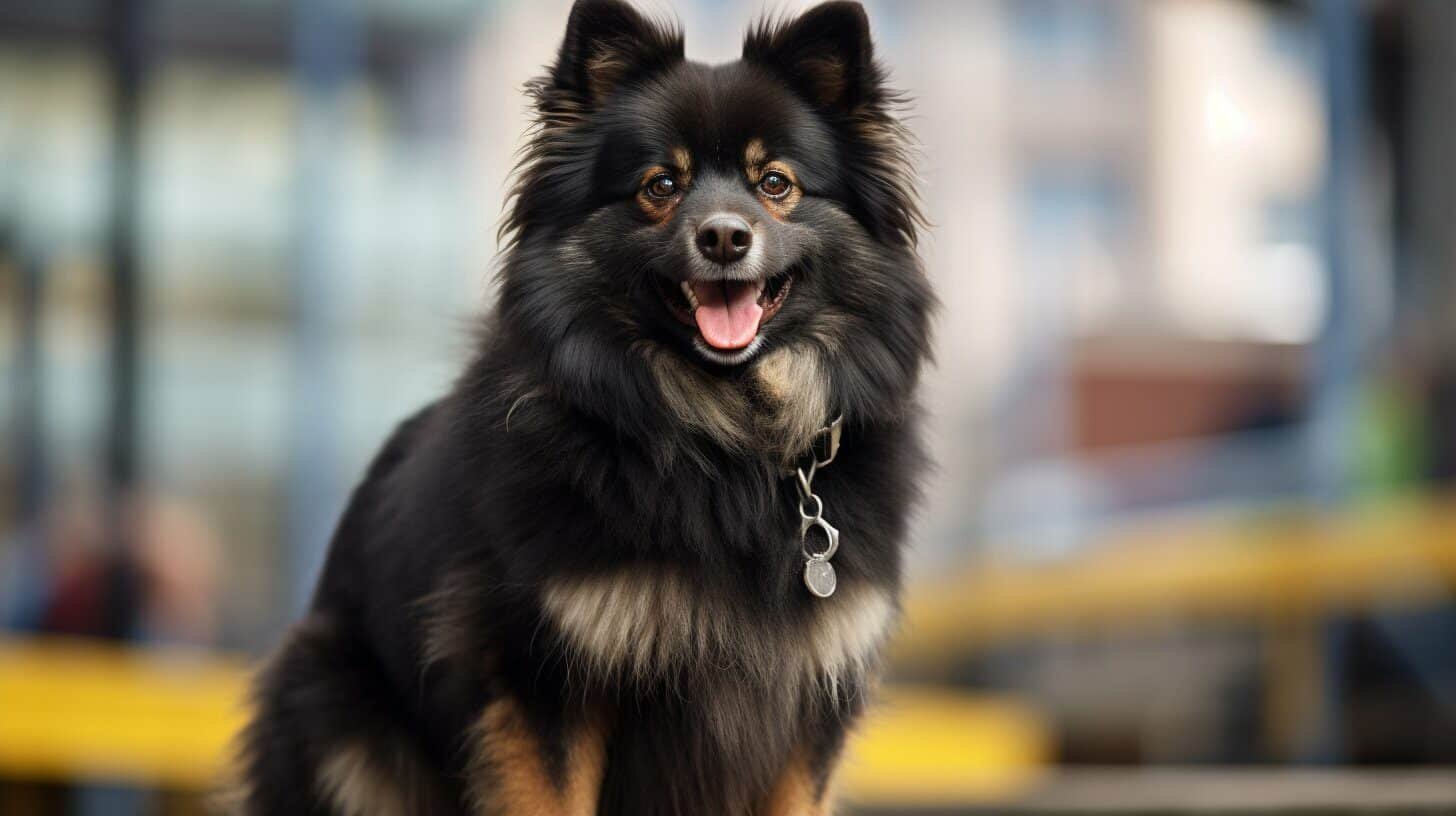Are Tibetan Terriers smart? Do they possess high intelligence? In this article, I will delve into the fascinating world of Tibetan Terriers and uncover the truth behind their intelligence level.
Tibetan Terriers are not only known for their adorable appearance and affectionate nature, but also for their remarkable cognitive abilities. These intelligent dogs have a long history as watchdogs, guarding their families with unwavering loyalty and dedication.
With their alertness and protective instincts, Tibetan Terriers make excellent family companions. They are quick learners and possess a keen problem-solving ability. Whether it’s learning new tricks or taking on challenging training exercises, these dogs showcase their intelligence with every task.
Despite the name “terrier,” Tibetan Terriers are not true terrier breeds. However, their intelligence and adaptability make them similar to their terrier counterparts. These dogs are not only intelligent, but also highly adaptable to various living environments.
Are Tibetan Terriers Smart
- Tibetan Terriers are highly intelligent and possess remarkable cognitive abilities.
- They are quick learners and excel in various activities and training exercises.
- Despite not being true terriers, they are intelligent and adaptable companions.
- They form strong bonds with their owners and are known for their loyalty and devotion.
- Tibetan Terriers have a long history as watchdogs and are alert and protective.
General Appearance and Coat of Tibetan Terriers
Tibetan Terriers possess a medium-sized, well-balanced body with a powerful build and an effortless gait. They have large, expressive eyes and ears that hang down elegantly. One of their most distinctive physical traits is their unique double coat, which consists of a soft, woolly undercoat and a profuse, fine outercoat. This luxurious coat can be straight or wavy, but it should not drag on the ground, maintaining an elegant appearance.
The Tibetan Terrier coat comes in a variety of colors or color combinations, showcasing their vibrant diversity. Common coat colors include black, brindle, gold, and white, offering a range of appealing options for potential owners. These coat colors can sometimes blend together, resulting in beautiful patterns that further enhance the breed’s allure.
Additionally, Tibetan Terriers have notable physical characteristics that contribute to their resilience and adaptability. They possess large, flat feet with thick pads and abundant hair between the toes. This unique feature provides them with exceptional traction and protection, granting them an advantage in navigating snowy terrains and slippery surfaces.
Tibetan Terrier Temperament and Behavior
Tibetan Terriers are known for their loyal and devoted temperament. They form strong bonds with their owners and are incredibly affectionate and loving. Their intelligence and sensitivity make them highly attuned to their human companions, allowing them to connect on a deep emotional level.
However, these dogs can be cautious and reserved when it comes to strangers. With their inherent wariness, Tibetan Terriers may take some time to warm up to new people. This cautious behavior is a natural instinct that stems from their protective nature.
When it comes to children and other pets, Tibetan Terriers are excellent companions. They appreciate relationships based on cooperation, trust, and respect, making them suitable for families with kids or other animals. These dogs have a gentle and patient disposition, making them great playmates and companions for youngsters.
One of the notable traits of Tibetan Terriers is their strong watchdog instinct. They are alert and attentive, always ready to protect their loved ones. Tibetan Terriers often showcase their protective nature through vigilant barking, alerting their owners to potential danger or intruders. With proper training, they can learn to distinguish between normal sounds and signals that indicate trouble, providing an added layer of security for their family.
Overall, Tibetan Terriers possess a temperament that combines loyalty, devotion, and caution. Their intelligence and sensitivity make them wonderful family companions, while their watchful nature ensures the safety and security of their loved ones.
The Tibetan Terrier Temperament at a Glance:
- Loyal and devoted to their owners
- Cautious and reserved with strangers
- Good with children and other pets
- Strong watchdog instinct

| Tibetan Terrier Temperament | Description |
|---|---|
| Loyal and Devoted | Tibetan Terriers form strong bonds with their owners and are incredibly loyal and devoted. They thrive on the love and attention they receive from their human companions. |
| Cautious with Strangers | Tibetan Terriers can be cautious and reserved when it comes to new people. Their protective nature makes them initially wary, but with time and proper socialization, they can warm up to strangers. |
| Good with Children and Other Pets | These dogs have a gentle and patient disposition, making them great companions for children and other animals. They appreciate relationships based on cooperation, trust, and respect. |
| Strong Watchdog Instinct | Tibetan Terriers are alert and attentive, always ready to protect their loved ones. They showcase their protective nature through vigilant barking, alerting their owners to potential danger. |
Tibetan Terrier History and Cultural Significance
In exploring the rich history of Tibetan Terriers, we discover that these beloved dogs have deep-rooted ties to Tibetan culture and Buddhist monasteries. Despite their name, Tibetan Terriers are not actually terriers but rather a breed of intelligent and adaptable companions.
Originating in Tibet, China, Tibetan Terriers served as faithful companions and watchful guardians in Buddhist monasteries. These dogs were highly esteemed and often given as gifts, representing good luck and respect. Their unique physical attributes, such as their double coat and powerful build, made them prized among the monastic community.
It is believed that Tibetan Terriers may have also worked as herders, flock guardians, and retrievers, enduring extreme climates and challenging terrains. Their versatility and adaptability ensured their usefulness in various roles, further solidifying their importance in Tibetan society.
Due to their revered status and invaluable contribution to the monastic community, Tibetan Terriers became known as the “Holy Dogs of Tibet.” They held a special place in the hearts of the Tibetan people, embodying loyalty, devotion, and spiritual significance.
The Prized “Holy Dogs of Tibet”
The Tibetan Terriers’ significance in Tibetan culture is further evident in their unique nickname, the “Holy Dogs of Tibet.” This revered title highlights the sacred role they played in Buddhist monasteries and their esteemed status within the Tibetan community.
As companions to monks and guardians of monastic grounds, these dogs embodied the sacred nature of their surroundings. Their loyalty, intelligence, and affectionate disposition endeared them to the residents of the monasteries, who recognized and valued their remarkable qualities.
The “Holy Dogs of Tibet” were not only physical protectors but also spiritual companions, providing solace and offering unwavering support to the monks in their daily lives. Their presence in the monasteries symbolized blessings, good fortune, and the enduring bond between humans and animals.
The cultural significance of Tibetan Terriers extends beyond their role in monasteries. Today, these cherished dogs continue to captivate people with their rich history and presence, forging deep connections with their owners and embodying the essence of loyalty and spirituality.
Tibetan Terrier Care and Maintenance
When it comes to caring for a Tibetan Terrier, proper nutrition, grooming, exercise, training, and socialization are essential to ensure their overall well-being and happiness.
Nutrition
Tibetan Terriers require a high-quality dog food that is suitable for their specific life stage. It’s important to provide them with a balanced diet that meets their nutritional needs. These dogs are not prone to overeating and tend to savor their food. Along with regular feeding, it’s important to provide them with fresh water at all times.
Grooming
Tibetan Terriers have a beautiful long coat that requires regular grooming to keep it healthy and prevent matting. Despite their thick coat, they are surprisingly low-maintenance when it comes to grooming. Regular brushing, at least three times a week, helps to remove loose hair, prevent tangles, and keep their coat in good condition. Occasional bathing is also necessary to keep them clean and fresh.
Exercise
Tibetan Terriers are an active breed and require regular exercise to keep them physically and mentally stimulated. Daily walks, playtime, and engaging activities are important to prevent boredom and maintain their overall health. These dogs enjoy interactive games and challenges, such as puzzle toys and agility exercises. Providing them with a variety of physical and mental stimulation is key to a happy and content Tibetan Terrier.
Training
With their high intelligence and quick problem-solving abilities, Tibetan Terriers respond well to positive reinforcement training methods. They are eager to please their owners and enjoy learning new commands and tricks. Consistency, patience, and rewards-based training techniques are highly effective in teaching them good manners and basic obedience skills. Training sessions should be kept short and enjoyable to maintain their focus and motivation.
Socialization
Proper socialization is crucial for Tibetan Terriers to develop into well-rounded and confident dogs. Exposing them to various people, animals, and environments from a young age helps them to become comfortable and friendly in different situations. Puppy classes and controlled interactions with other dogs are beneficial for their social development. Teaching them how to behave appropriately and positively reinforcing their good behavior will result in a well-socialized Tibetan Terrier.
Tibetan Terrier Genetic Health Conditions
Tibetan Terriers are generally a healthy breed, but they can be prone to certain genetic health conditions. It’s essential for potential owners to be aware of these conditions and take necessary precautions to ensure the well-being of their Tibetan Terrier.
Chondrodystrophy
One of the genetic health conditions that Tibetan Terriers may experience is chondrodystrophy. This is a skeletal disorder characterized by shortened limbs and early degeneration of spinal discs. It can lead to mobility issues and discomfort for the affected dog.
Intervertebral Disc Disease (IVDD)
Intervertebral disc disease (IVDD) is another condition that Tibetan Terriers may be prone to. It occurs when the discs between the vertebrae in the spine herniate, leading to pain, decreased mobility, and potentially even paralysis.
Primary Lens Luxation
Tibetan Terriers are also at risk for primary lens luxation. This is a disorder that causes the displacement of the lens in the eye, leading to vision impairment or loss. Early detection and treatment are crucial to managing this condition.
Progressive Retinal Atrophy (PRA)
Progressive retinal atrophy (PRA) is another genetic health condition that Tibetan Terriers may encounter. It is a progressive degeneration of the retina and can eventually result in complete vision loss.
To ensure the health and well-being of a Tibetan Terrier, it is important for breeders and owners to consider genetic testing. Genetic testing can help identify if a Tibetan Terrier carries the genes for these conditions before breeding or adopting, allowing for informed decisions to be made regarding the dog’s health and future.
Regular veterinary check-ups and early intervention can also help manage and mitigate the impact of these genetic health conditions.
| Genetic Health Condition | Description |
|---|---|
| Chondrodystrophy | Skeletal disorder with shortened limbs and early degeneration of spinal discs. |
| Intervertebral Disc Disease (IVDD) | Condition where spinal discs herniate, leading to pain and mobility issues. |
| Primary Lens Luxation | Disorder causing displacement of the lens in the eye, resulting in vision impairment. |
| Progressive Retinal Atrophy (PRA) | Progressive degeneration of the retina, leading to vision loss. |
Adaptability and Versatility
Tibetan Terriers are incredibly adaptable dogs and can thrive in various living environments. Whether you live in a cozy apartment or a spacious house, these versatile dogs can adjust well as long as they receive the necessary exercise and mental stimulation.
Unlike some breeds, Tibetan Terriers are not overly demanding and can be content in both urban and rural settings. Their adaptable nature makes them an excellent choice for individuals or families living in different environments.
One remarkable aspect of Tibetan Terriers is their agility and athleticism. These dogs excel in agility courses, flyball, and even traditional herding exercises. Their nimble bodies and quick minds make them natural performers in these activities. Engaging in these exercises is not just a physical outlet for them; it also provides mental stimulation and strengthens the bond between Tibetan Terriers and their owners.

Tibetan Terriers truly enjoy being active partners with their owners, and their agility skills highlight their versatility as companions. Whether it’s participating in agility competitions or simply going for a lively run in the park, these dogs are sure to impress with their boundless energy and natural agility.
Conclusion
Tibetan Terriers are remarkable dogs known for their intelligence, adaptability, and loyal nature. With a rich history and distinctive physical traits, they have captured the hearts of dog lovers around the world.
These affectionate and devoted companions excel in various activities and training exercises, showcasing their high intelligence and problem-solving abilities. Additionally, Tibetan Terriers make excellent family pets, forming strong bonds with their owners and being good with children and other pets.
Regular grooming is necessary to maintain their beautiful coat, and they thrive with proper exercise and mental stimulation. Whether in an apartment or a spacious home, Tibetan Terriers will adapt well to their living environment as long as their needs are met.
With their unique cultural significance, rooted in Tibetan history and culture, Tibetan Terriers hold a special place in the hearts of many. Their intelligence, loyalty, and versatility are highly valued traits, making them an ideal choice for anyone seeking a loyal, clever, and loving canine companion.






